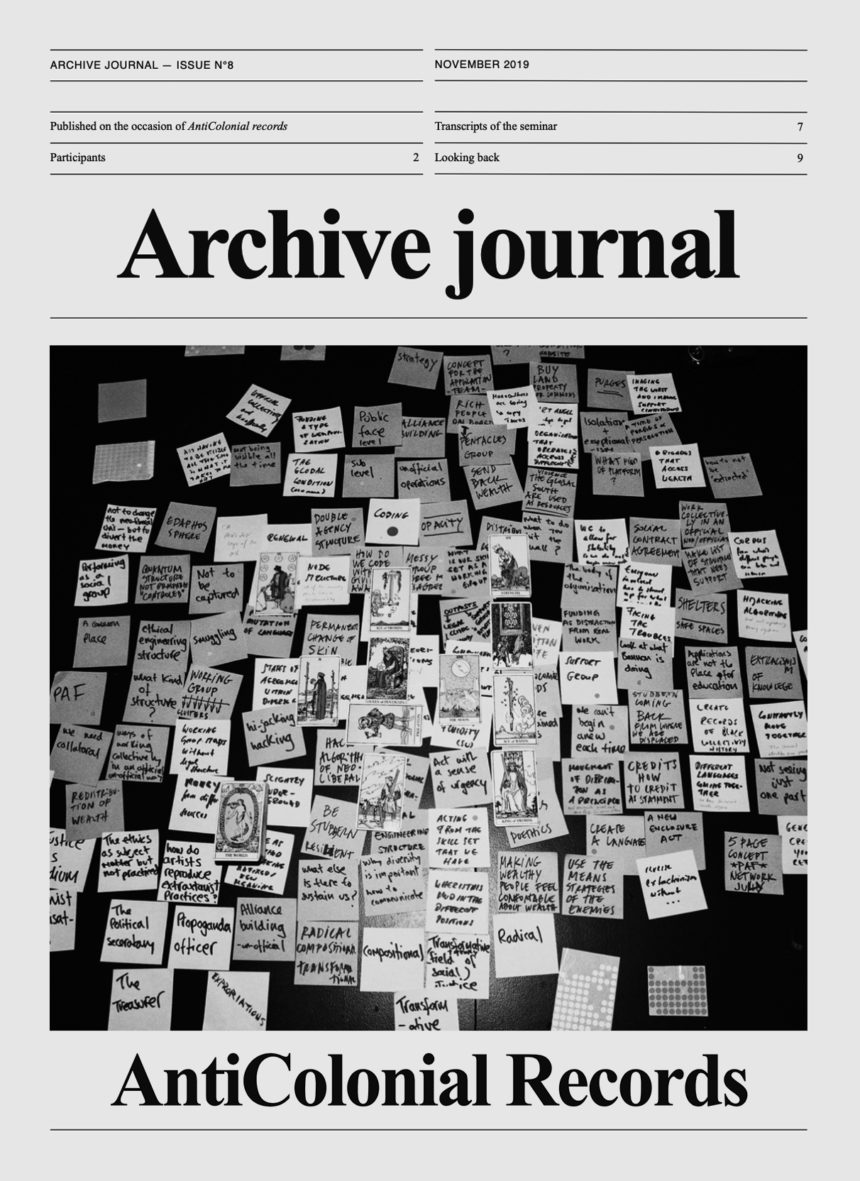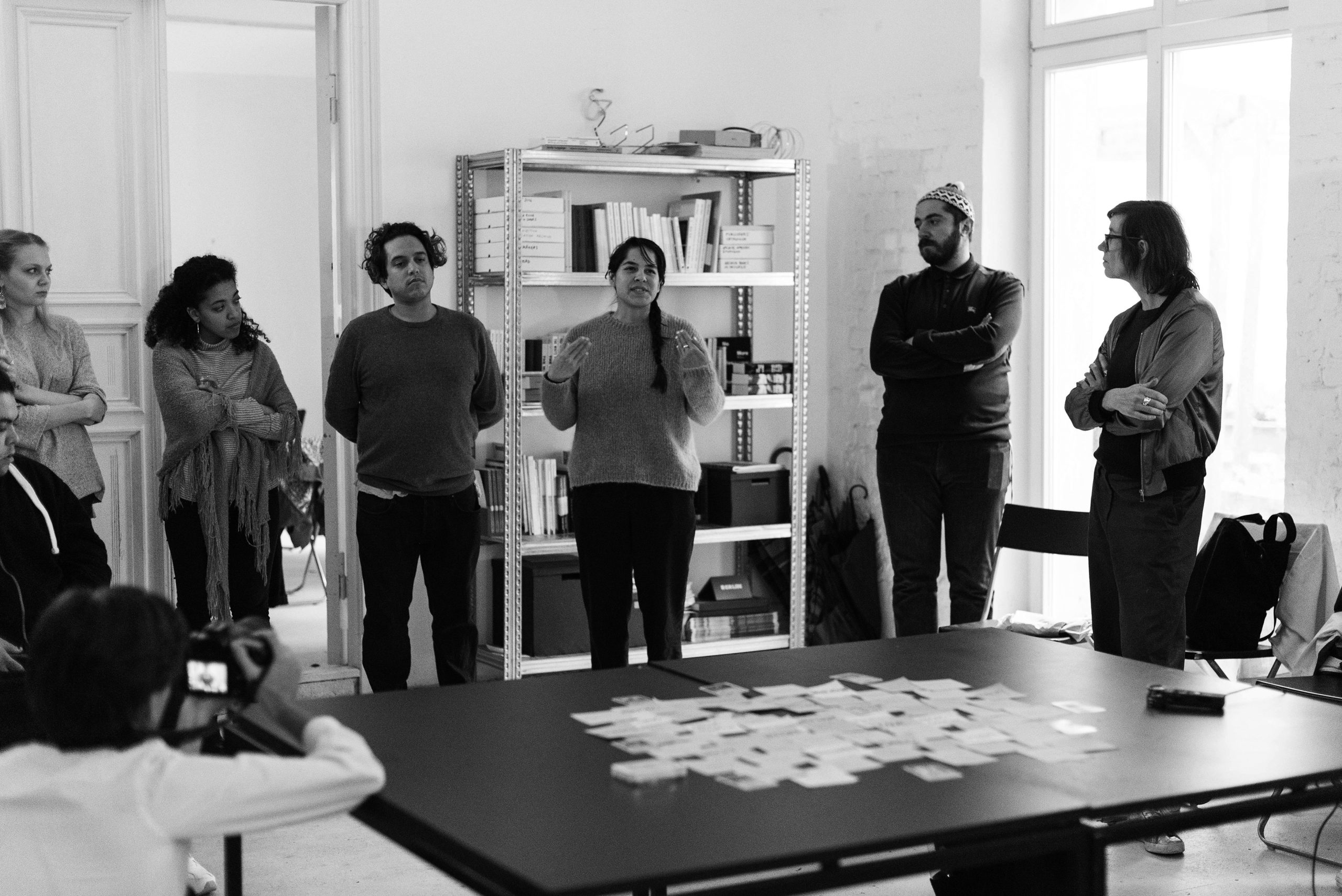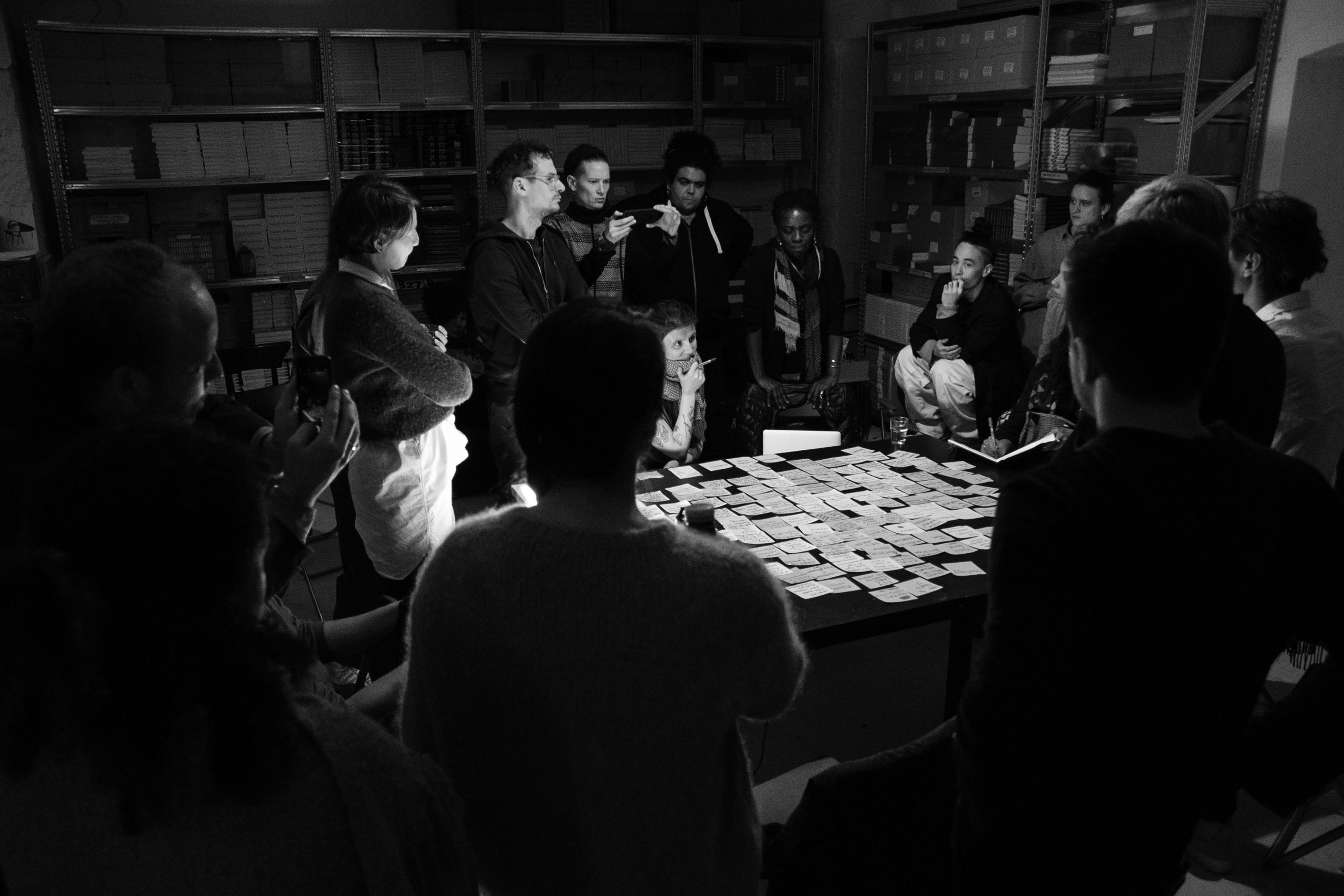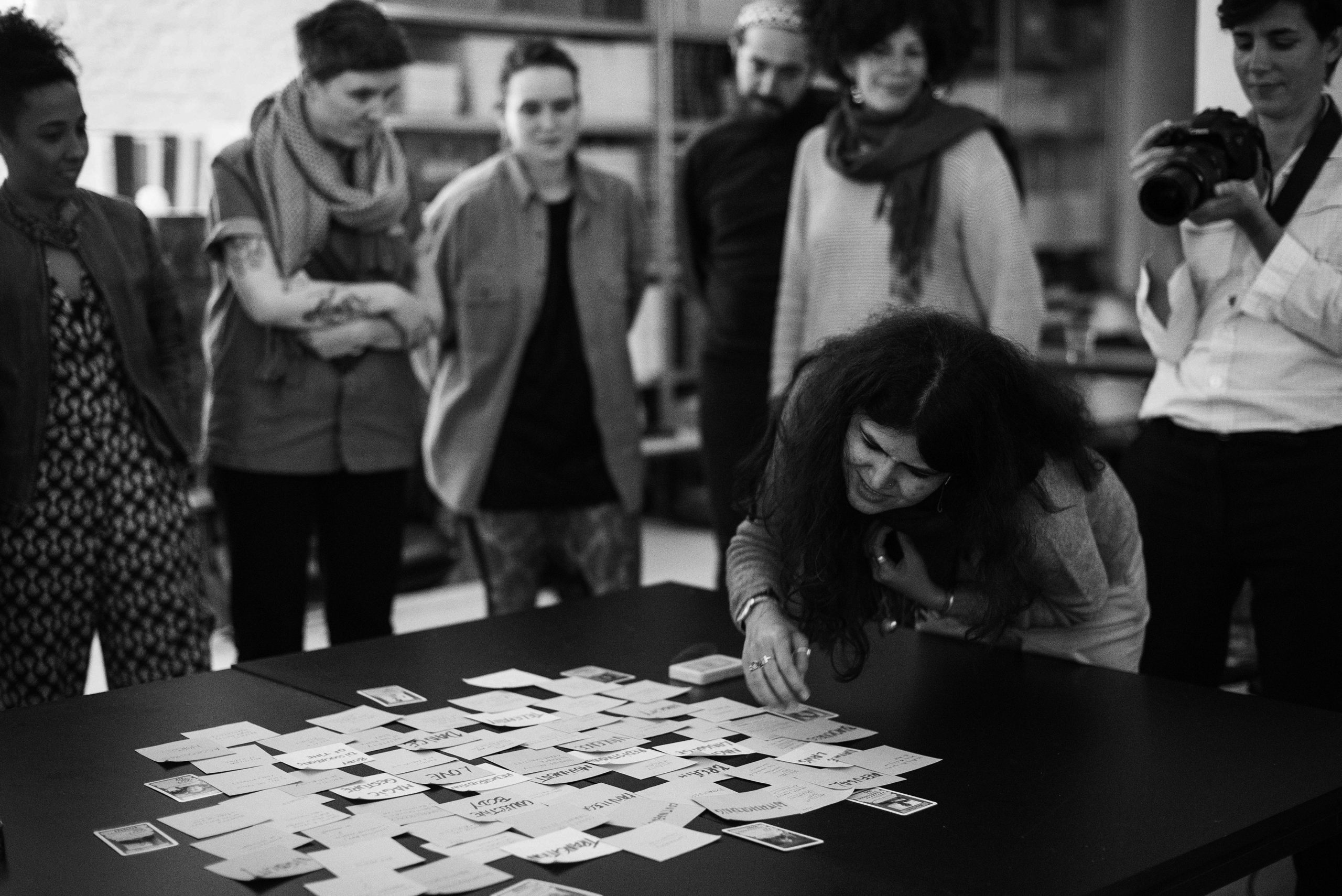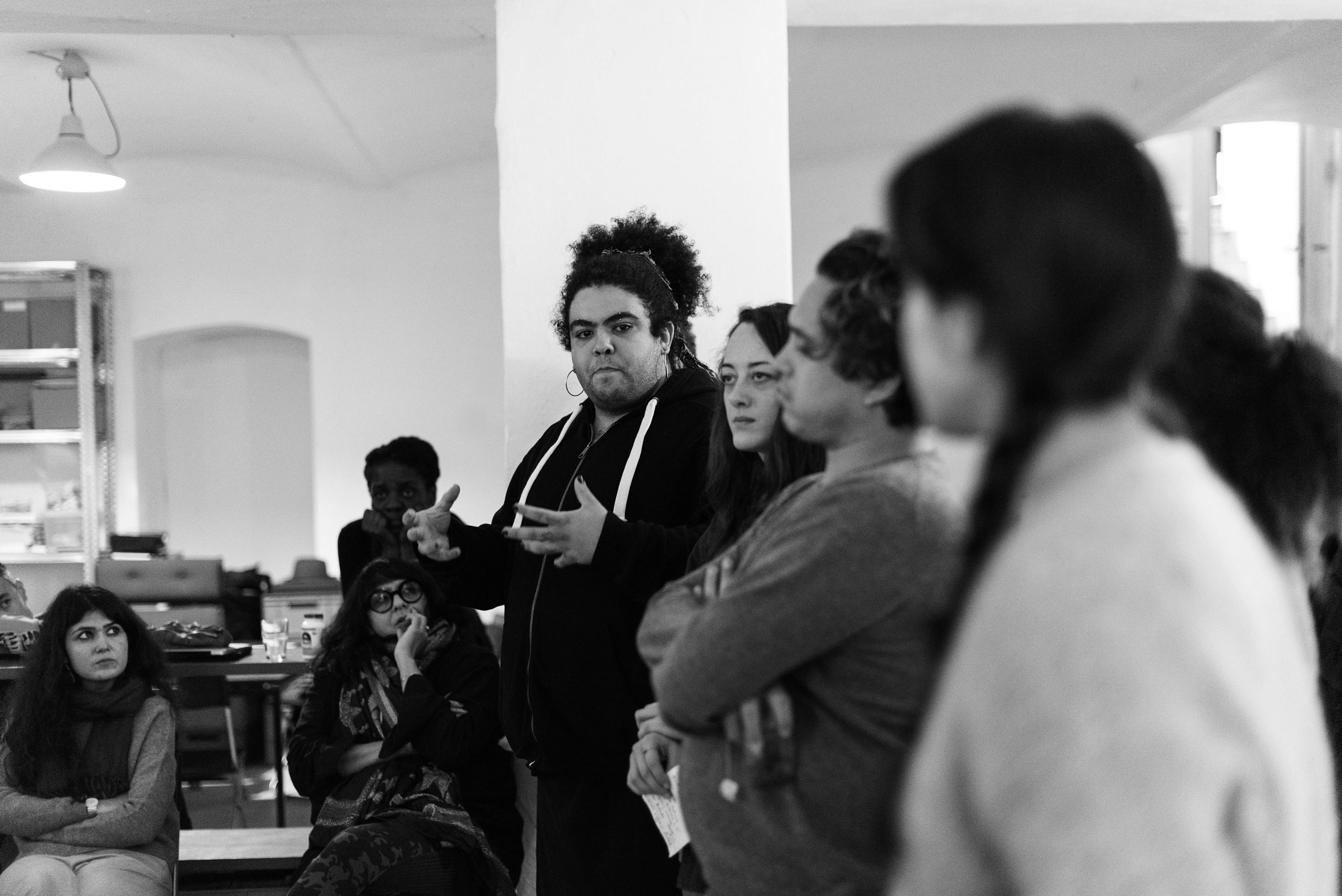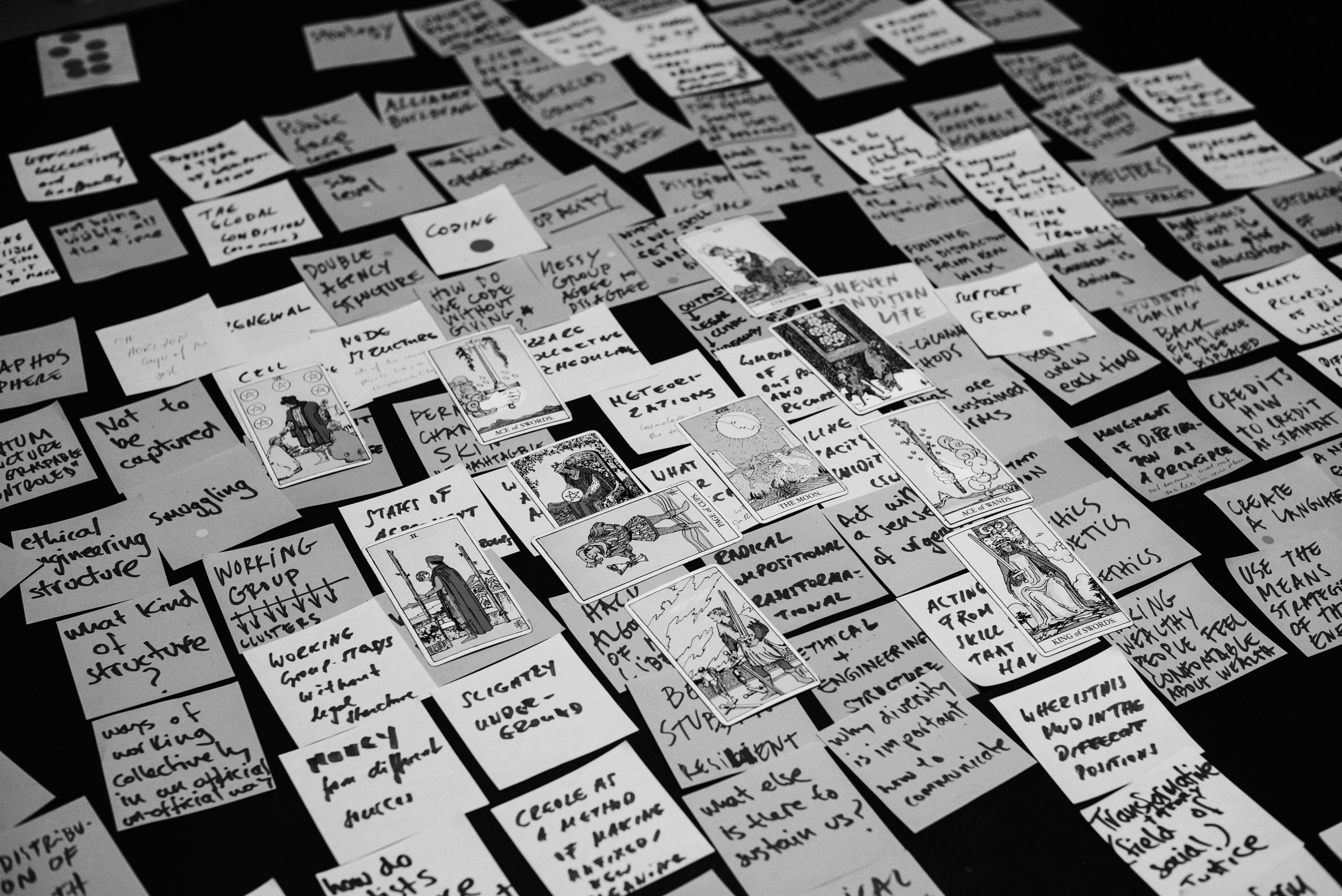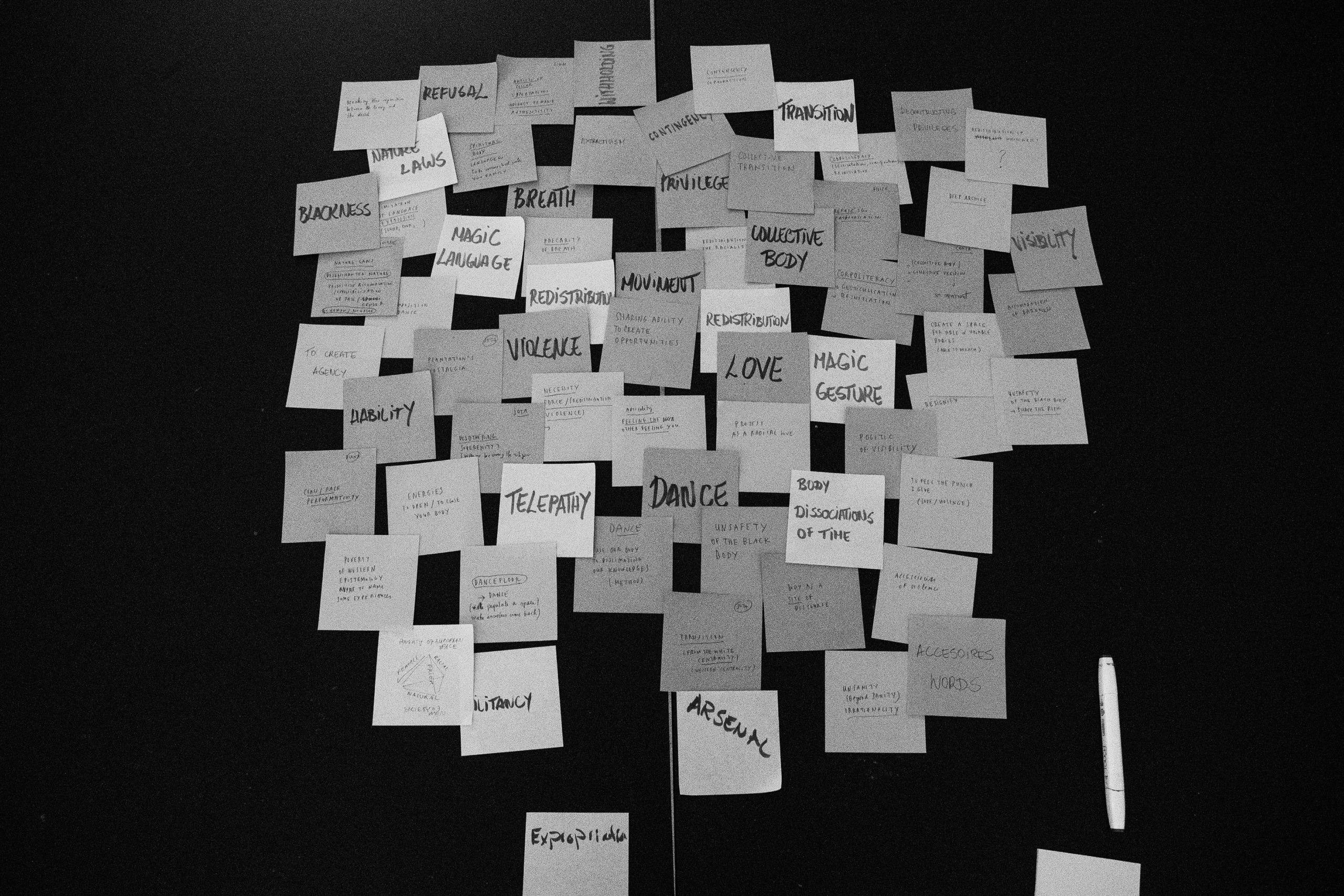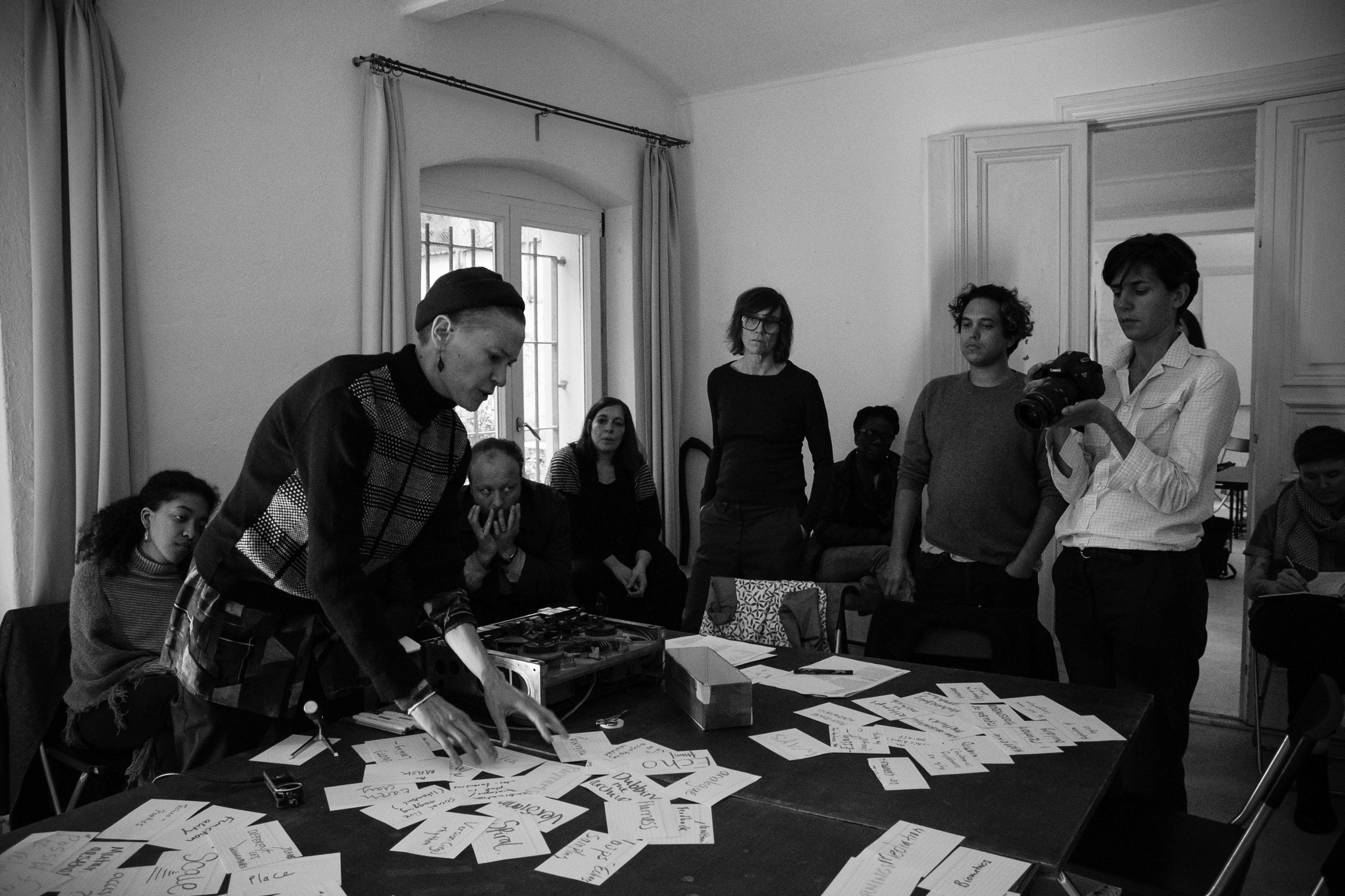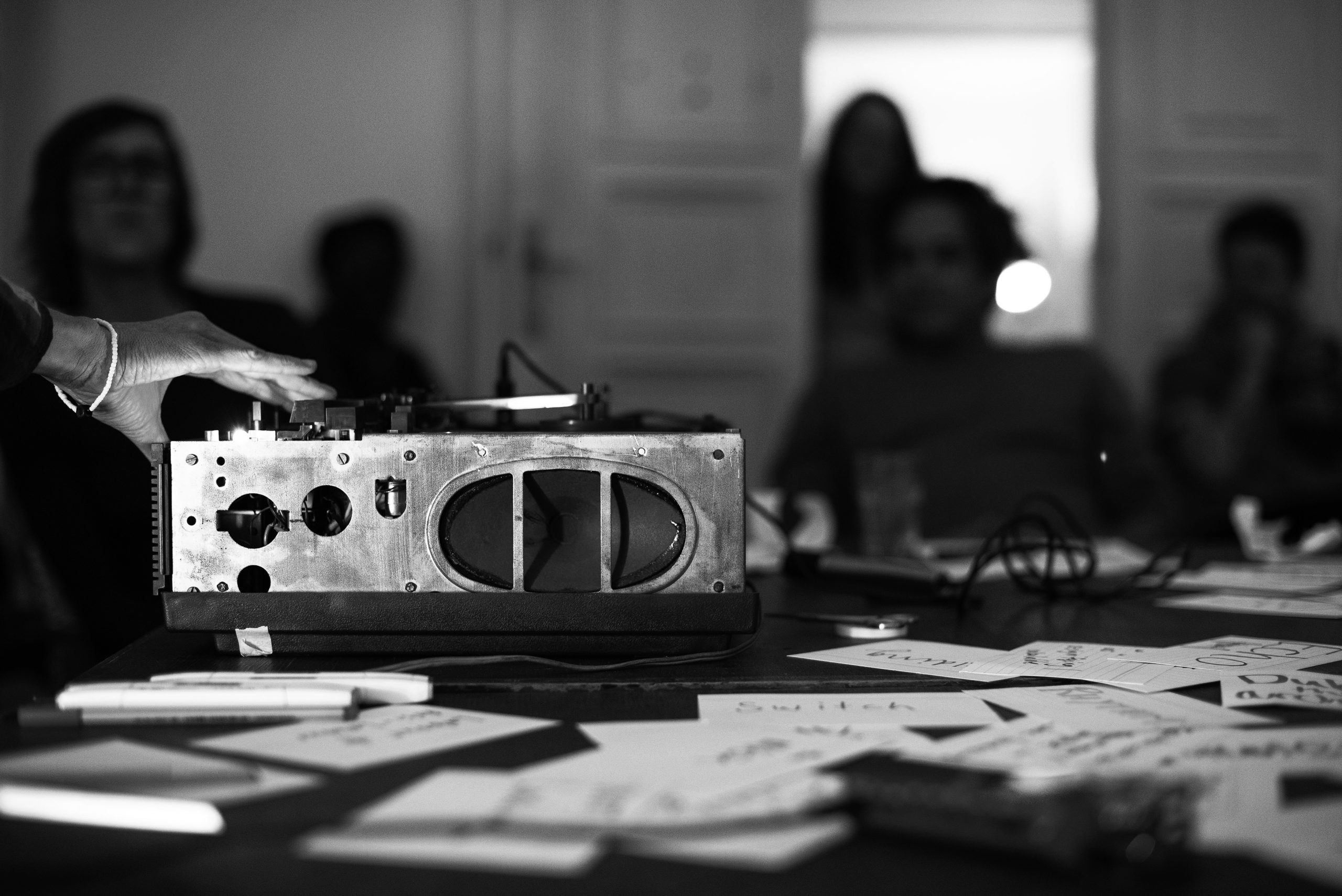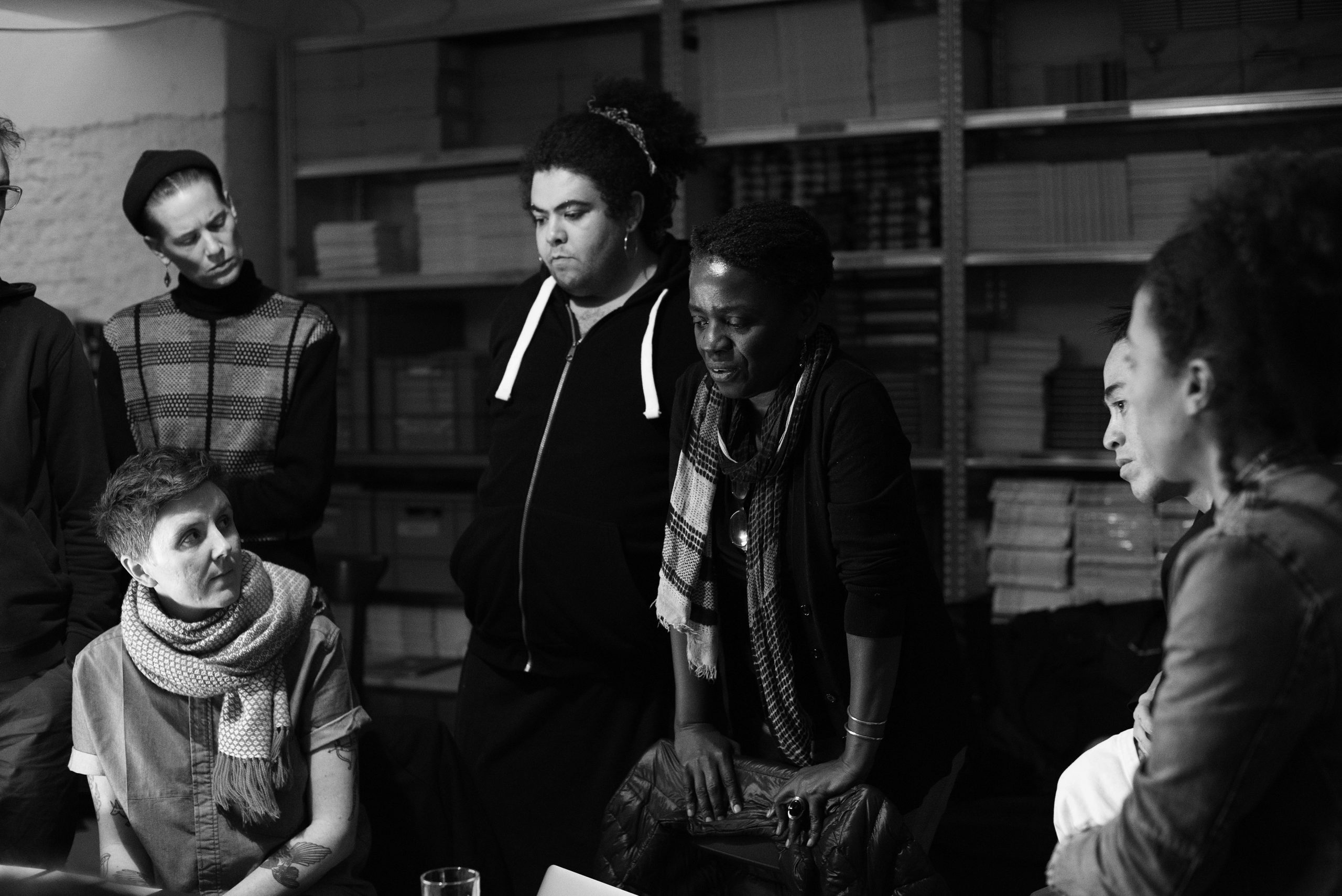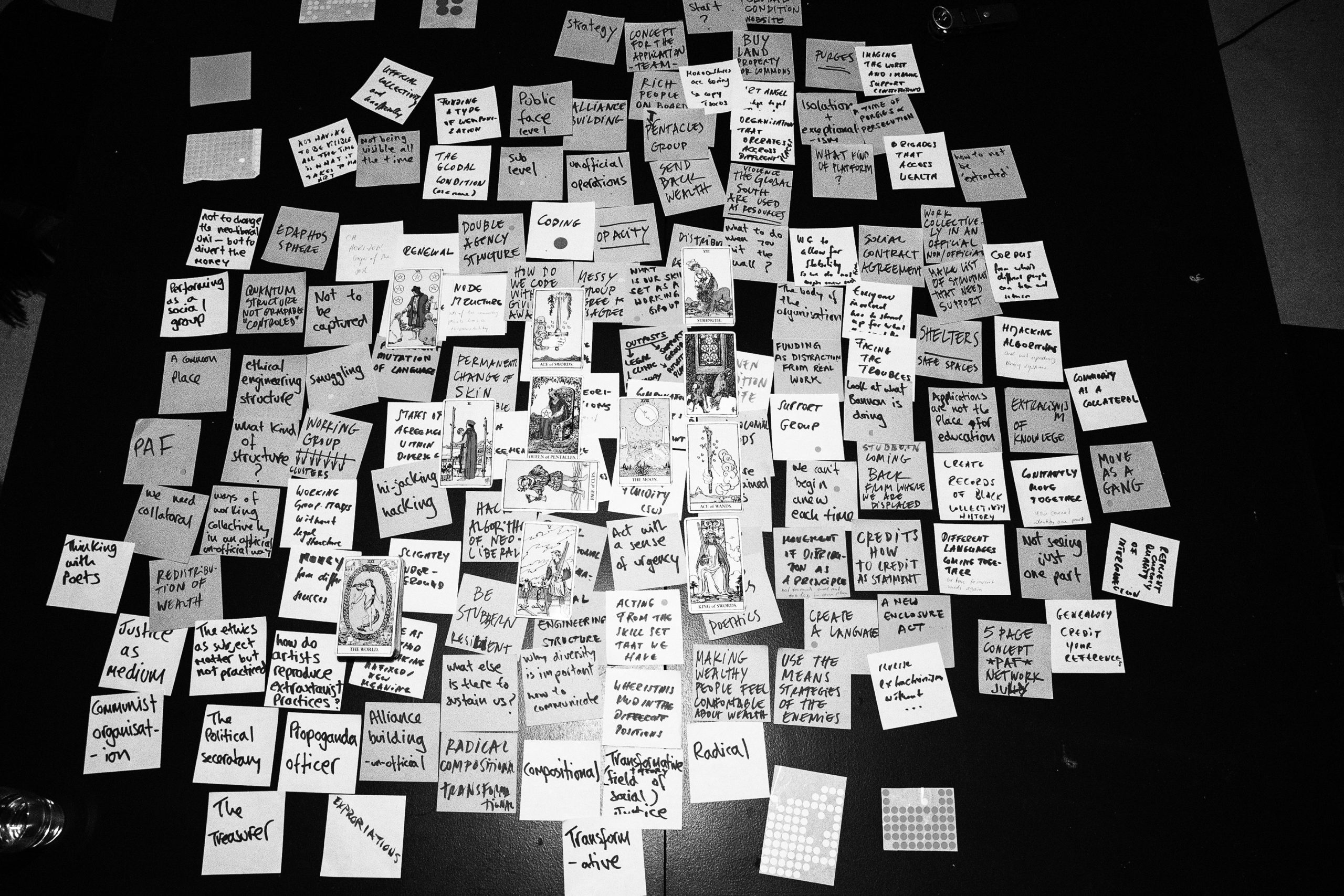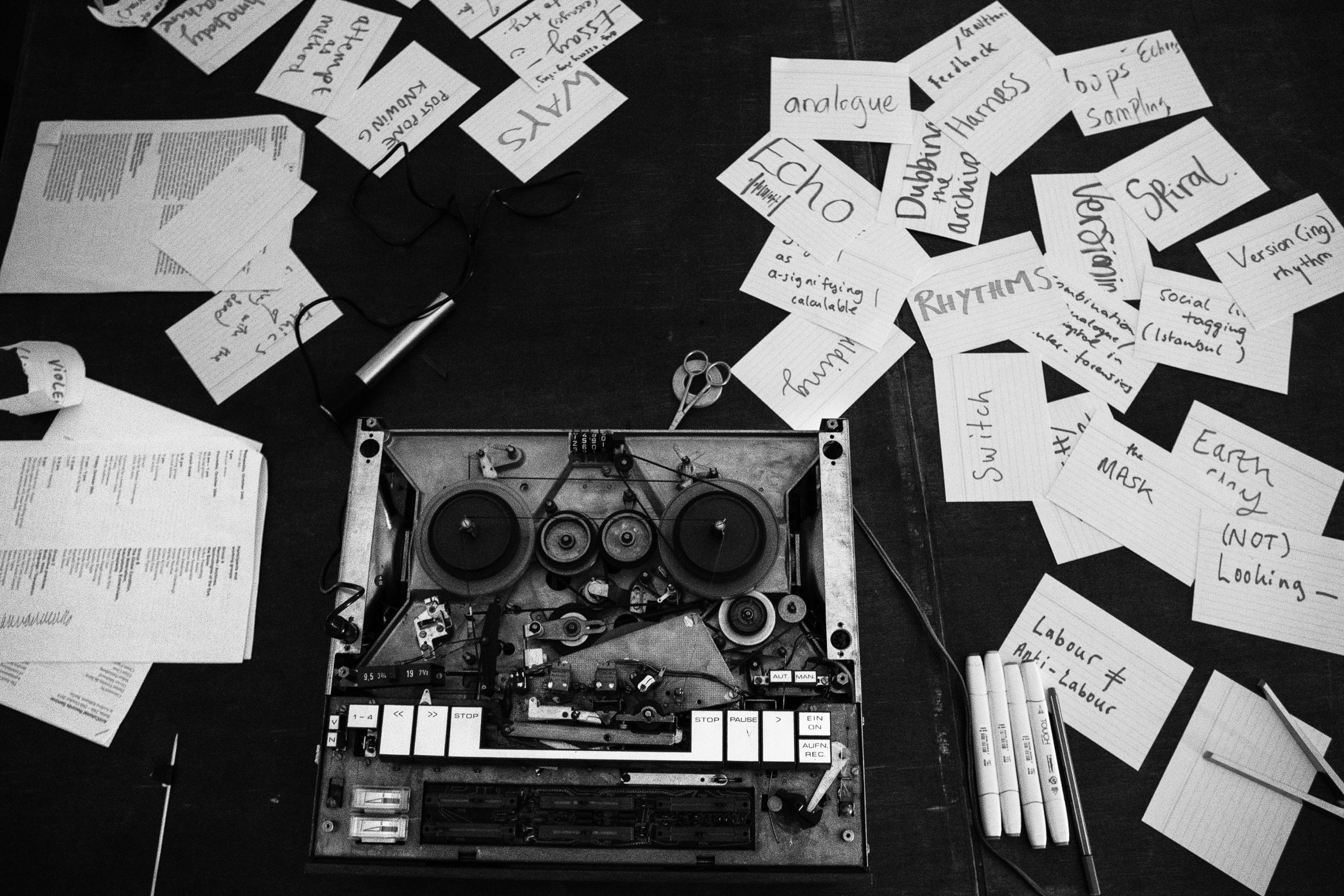Records / Archives, Technologies of the Eye, the Sonic
Technologies of the eye, once weaponized, became the prostheses of militarism in industrialized societies. Decomposing the word “Enlightenment” reveals how light and its techno-propagation structures an epistemic system of transparency and clearness to inform a racialized system of judgment and values. In many of his works, Harun Farocki investigated the history of this visual regime, and he traced how today, images merge with technical processes to become “operational images”. This shift has many implications: Step by step, it creates new and more sophisticated forms of domination that pervade the military and non-military, public and private, industrial and post-industrial sphere. Antoinette Rouvroy has coined the term gouvernementalité algorithmique and asked for perspectives of emancipation in this realm characterized by a universal currency of data. In a world of data, technologies of light and optics and the digitalization of sonic and voice work side by side with the biometric data transfer and various technologies to identify and trace people and then control their movement. How and where these sets of data are produced, stored and accessed impacts what kinds of counter practices are possible to imagine. Archives become another form of proof and memory, but to what ends?
read more
The Global Condition, Raw Materialism, Inscriptions, Extractivism, Transplants
Plato’s abstraction of framing the four elements (water, earth, fire, air) into geometric forms predicts and informs the separational logic that laid the groundwork for the larger project of western modernity. The complex historical and contemporary global conditions, framing recent discussions of the “anthropocene” and confronting us with alarming developments of climate change and ecological violence, actualize the rifts with natural resources and ecology through treacherous extractivist patterns that have been dominant for centuries. Raw materialism proposes an approach to the planetary through another, more tenuous knowledge. Reading the scars of inscription that tattoo the earth (traces of reckless mining, of slash-and-burn elimination of forests etc.) can activate less violent forms of extraction – an access to knowledge that also allows alien transplants to thrive in the harshest of conditions.
read more
Collective Practices, Body, Voice, Language
In an intersectional perspective combining race, class, gender, sexuality, disability, age, territory, amongst others, the idea of this group will be to think the minoritarian body as new merchandise in the economy of visibility. To see how this contemporary body must negotiate its apparition – and its flight – as much as its manner of saying and naming itself to escape the recurrence of history’s violences and multiple forms of appropriation. To also think identity politics as spaces of a sometimes painful contingency between dominated and domineering, and examine the coproduction of the political labels of the White and the Black. To debate of the novel exhaustion of the black body, of white innocence and all its consequences from conservative spheres to progressive circles. To speak of allies and accomplices. To look into the way of telling the narrative, into language’s tragic and sly relations, to consider poetics and performance practices as singular ways to create spaces of enunciation, shelters. To roam the potentialities of corporal, collective and non-verbal practices like spaces of knowledge and transmission by ritual. To imagine the possible transformations and metamorphoses.
read more
Related projects
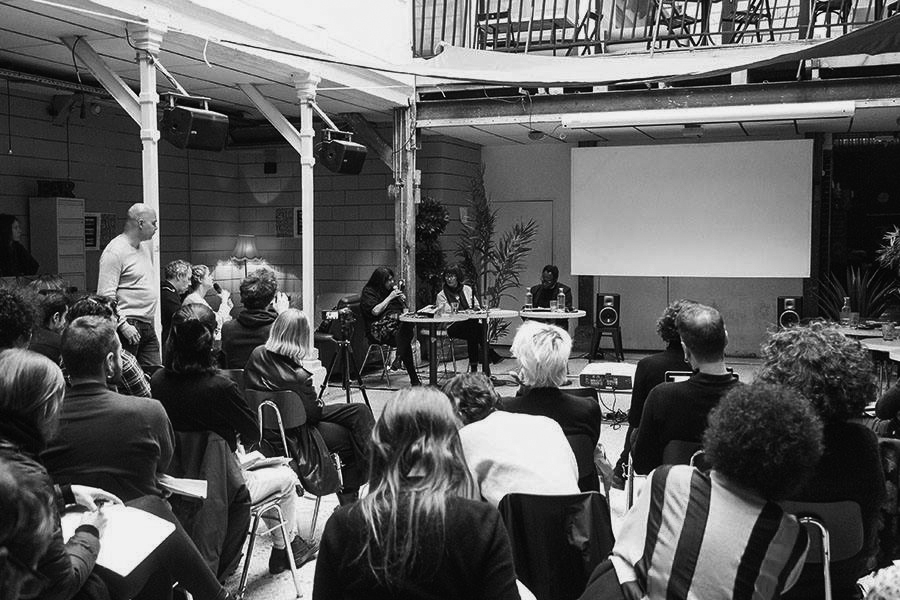
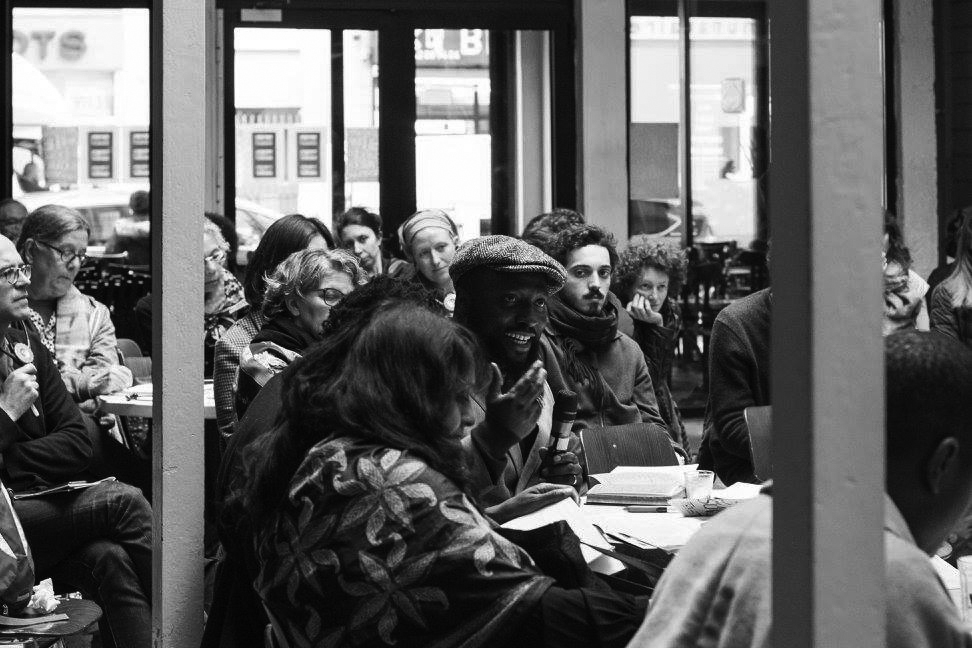
Black Lens
A two-day experimental seminar
convened by Khiasma at La Colonie (Paris)
29–30 March 2018
Black Lens unfolds as one long conversation ongoing over two days — an open work space to share forms and research interrogating the conditions of invention of safe spaces through gesture and narrative, code and body. Following on from the exhibition Op-Film: An Archaeology of Optics, Black Lens attempted to trace, within technologies of sight, the contours of minority ecologies, forms of life and of knowledge transmission. From humus to ocean, algorithm to creole, from surface to depth — where are new zones of conflict drawn out and where do they crystallize? Where can the voices we need to struggle with be written out and woven?
